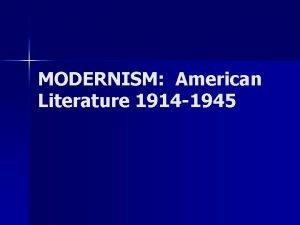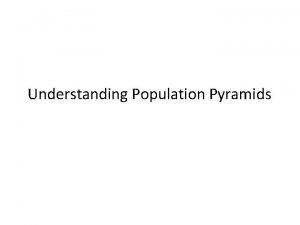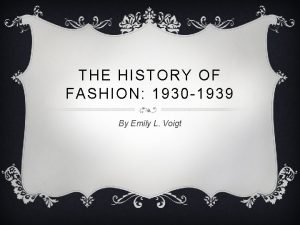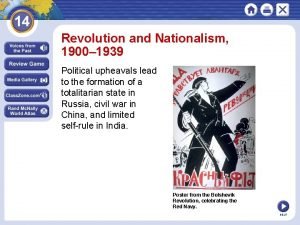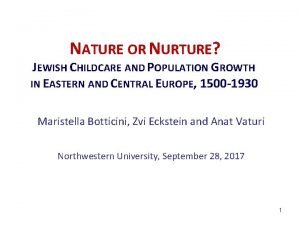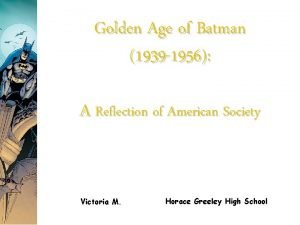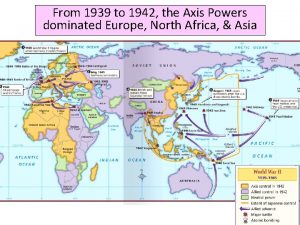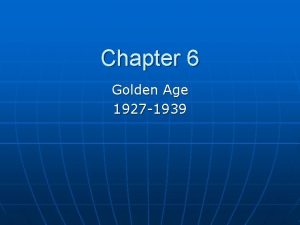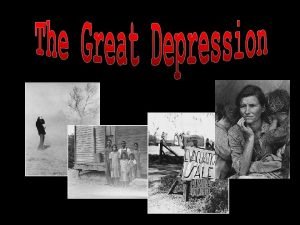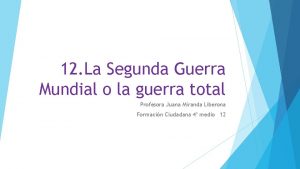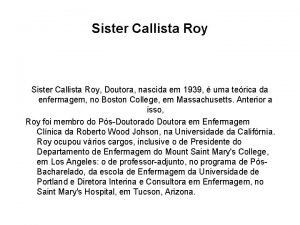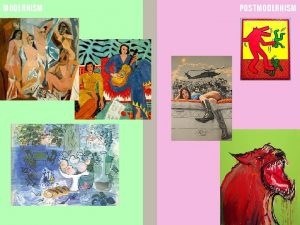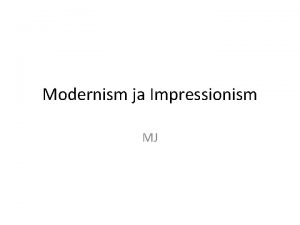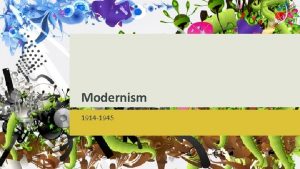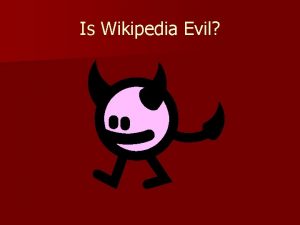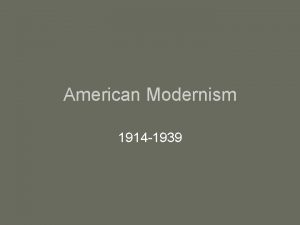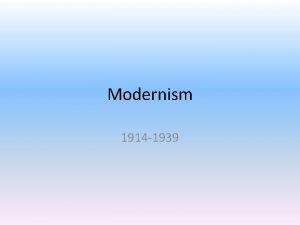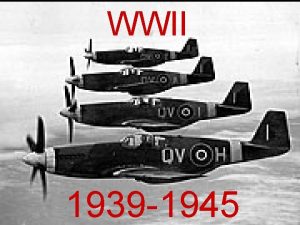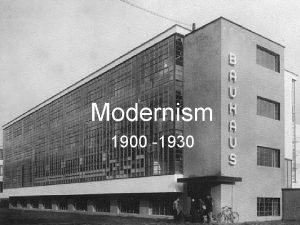MODERNISM 1914 1939 Wikipedia definition l Modernism is














- Slides: 14

MODERNISM 1914 - 1939

Wikipedia definition l Modernism is a trend of thought that affirms the power of human beings to make, improve, deconstruct and reshape their built and designed environment, with the aid of scientific knowledge, technology and practical experimentation, thus in its essence both progressive and optimistic.

l Modernist literature is characterized chiefly by a rejection of 19 th-century traditions and of their consensus between author and reader: conventions of realism. . . or traditional meter.

l Modernist writers tended to see themselves as an avant-garde disengaged from bourgeois values, and disturbed their readers by adopting complex and difficult new forms and styles. In fiction, the accepted continuity of chronological development was upset by Joseph Conrad & and William Faulkner.

l Modernist writing is predominantly cosmopolitan, and often expresses a sense of urban cultural dislocation, along with an awareness of new anthropological and psychological theories. Its favored techniques of juxtaposition and multiple points of view to challenge the reader to reestablish a coherence of meaning from fragmentary forms.

l It was argued that, if the nature of reality itself was in question, and if restrictions which had been in place around human activity were falling, then art, too, would have to radically change. Thus, in the first fifteen years of the twentieth century a series of writers, thinkers, and artists made the break with traditional means of organizing literature, painting, and music.

l Modernist literature in America dealt with such topics as racial relationships, gender roles and sexuality, to name just a few. It reached its peak in America in the 1920 s up to the 1940 s.

l Racial relations between blacks and whites, the gap between what was expected of each of the two and what the actual facts were, or, better said, prejudice in the society of the time are themes dealt with in most of the modernist American literature

l Madness and its manifestations in the human being seems to be another favorite theme of American modernist writers

l Influenced by the first World War, American modernist writers, such as Ernest Hemingway, offer an insight into the psychological wounds and spiritual scars of the war experience. The economic crisis in America at the beginning of the 1930 s also left a mark on the literary creations of the period

l Sigmund Freud offered a view of subjective states involving an unconscious mind full of primal impulses and counterbalancing self-imposed restrictions

l The most controversial aspect of the modern movement was, and remains, its rejection of tradition. Modernism's stress on freedom of expression, experimentation, radicalism, and primitivism disregards conventional expectations. In many art forms this often meant startling and alienating audiences with bizarre and unpredictable effects. In literature this often involved the rejection of intelligible plots or characterization in novels, or the creation of poetry that defied clear interpretation.

AMBIGUITY

l l l l l T. S. Eliot William Faulkner James Joyce Marianne Moore Ezra Pound Gertrude Stein Wallace Stevens William Carlos Williams Katherine Anne Porter
 American literature modernism
American literature modernism Italy population 1939
Italy population 1939 1930-1939 fashion
1930-1939 fashion Revolutionary leaders 1900-1939
Revolutionary leaders 1900-1939 Poland population 1939
Poland population 1939 Varför kallas perioden 1918-1939 för mellankrigstiden
Varför kallas perioden 1918-1939 för mellankrigstiden The golden age (1939-1956)
The golden age (1939-1956) Harta germaniei in al doilea razboi mondial
Harta germaniei in al doilea razboi mondial Goodguysww.
Goodguysww. Golden age of aviation 1927-1939
Golden age of aviation 1927-1939 1939 market crash
1939 market crash Mapamundi 1939
Mapamundi 1939 1939
1939 Nazio intereseko industriak iruzkina
Nazio intereseko industriak iruzkina Teoria da adaptação sister callista roy 1939
Teoria da adaptação sister callista roy 1939
